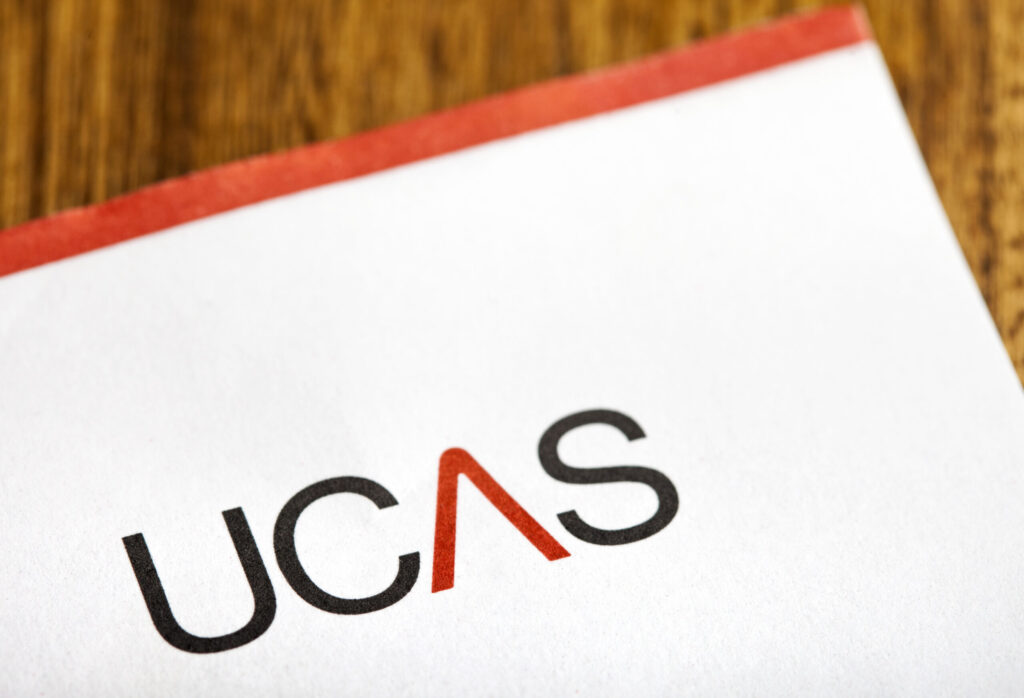To gain more UCAS points, consider diversifying your qualifications and experiences. Firstly, you can take additional A-levels or AS-levels, boosting your points by up to 140 per subject.
Look into vocational qualifications such as BTECs or Cambridge Pre-U, which offer varying points depending on the level of achievement. Engage in extracurricular activities like volunteering or pursuing hobbies that offer UCAS points, such as musical instrument exams or dance qualifications.
Furthermore, consider language proficiency exams like Cambridge ESOL, which provide significant points and enhance your employability. Remember to research each qualification’s requirements and relevance to your desired courses or career paths to maximize your UCAS point potential.
What are UCAS points?

UCAS points serve as a standardized method for scoring and comparing different qualifications. They assign numerical values to grades in qualifications like A-Levels, BTECs, Scottish Highers, and International Baccalaureate diplomas. This system enables universities to easily assess and compare the academic achievements of applicants.
For example, a C at A-Level and an H5 in the International Baccalaureate both equate to 32 UCAS points each. This allows universities to evaluate applicants’ qualifications regardless of the grading system used by their educational institution.
When applying to university courses, students input their qualifications and grades into their UCAS application. This provides universities with a clear understanding of their academic background and how it aligns with the entry requirements for their chosen programs.
Understanding UCAS points is essential for students. It helps them determine the grades they need to achieve to meet the entry requirements of their desired universities and courses.
How do UCAS Points work?
UCAS Tariff Points are like a scoring system that helps universities and colleges figure out if you’re a good fit for their courses. Here’s how they work:
First off, they’re all about your qualifications and grades. Depending on what kind of qualification you have and how well you did, you get a certain number of points. This mainly applies to things like A-levels, BTECs, and Scottish Highers – you know, the Level 3 stuff.
There’s this handy tool called the UCAS Tariff Calculator. You plug in your qualifications, and it tells you how many points they’re worth. If your qualification isn’t listed, check the entry requirements for the courses you’re interested in to ensure you meet them.
Now, each university or college sets its own entry requirements. Most of them go by the full Tariff points. However, some might tweak things depending on how relevant your qualifications are to the course you want to study. So, always double-check what they’re asking for.
One thing to remember: UCAS Tariff points don’t count for things like GCSEs. They’re all about the bigger qualifications you get after that.
Overall, UCAS Tariff Points make it easier for everyone to understand your academic achievements and compare them with other applicants. It’s like a common language for talking about grades and qualifications when you’re applying for university or college. Easy, right?
Tables of UCAS points

The UCAS tariff points linked to the most popular qualifications and grades are shown in the series of tables below.
A-Level UCAS Points
| A-Level Grade | UCAS Tariff Points |
| A* | 56 |
| A | 48 |
| B | 40 |
| C | 32 |
| D | 24 |
| E | 16 |
AS-Level UCAS Points
| AS-Level Grade | UCAS Tariff Points |
| A | 20 |
| B | 16 |
| C | 12 |
| D | 10 |
| E | 6 |
EPQ (Extended Project Qualification) UCAS Points
| Extended Project Grade | UCAS Tariff Points |
| A* | 28 |
| A | 24 |
| B | 20 |
| C | 16 |
| D | 12 |
| E | 8 |
BTEC UCAS Points
| BTEC Grade | UCAS Tariff Points |
| D* | 56 |
| Distinction | 48 |
| Merit | 32 |
| Pass | 16 |
Access to HE Diploma UCAS Points
| Access to HE Diploma | UCAS Tariff Points |
| 45 Distinctions | 144 |
| 45 Merits | 96 |
| 45 Passes | 48 |
13 Ways to Boost Your UCAS Points

Boosting your UCAS points can significantly enhance your chances of gaining admission to your desired university or college in the UK. Here are 13 strategies to help you increase your UCAS points:
Additional A-level or AS-level Study
One effective way to increase your UCAS points is by taking an additional A-level or AS-level.
While the standard is usually three A-levels, some high-achieving students opt for four or even five A-levels. Others choose a combination of four A-levels with an extra AS level. Adding an extra A-level can significantly enhance your application, potentially earning you up to 140 extra UCAS points.
It’s important to note that most offers are based on three A-levels. However, having an additional A-level, especially in facilitating subjects, can strengthen your application, particularly for competitive courses or universities.
If you’re considering this option, it’s advisable to consult with your school teachers. They can help determine which subjects would fit into your timetable and align with your academic goals.
Pursue a Level 3 Diploma, Certificate, or Award
Explore distance learning courses or evening classes at local colleges to complete an award, certificate, or diploma alongside your A-level studies.
Earning a full diploma with A-levels is tough; however, smaller qualifications are achievable and provide UCAS points worth half an A-level.
Moreover, gain vocational qualifications relevant to your future career plans or develop skills in areas of personal interest while accruing UCAS points.
For example, the NCFE Level 3 Certificate in Photography offers 60 UCAS points, with 120 points for completing the full diploma.
Consider courses like the AAT Certificate in Accounting or the Certificate of Personal Effectiveness, which improve employability skills such as problem-solving and teamwork.
The AAT Certificate in Accounting and the Certificate of Personal Effectiveness offer 70 UCAS points and valuable skills applicable across various career paths.
Strengthen Mathematics Proficiency with Free-standing Mathematics Qualification
If not studying Mathematics at A-level but aiming to demonstrate proficiency, consider pursuing an FSMQ. FSMQ provides a qualification level between GCSE and AS-level Mathematics, offering the equivalent of an A-level module at the Advanced Level.
Ideal for showcasing mathematical abilities on university applications and CVs, particularly if Mathematics isn’t a primary A-level subject.
Achieving an A grade in FSMQ earns you 20 UCAS points.
Obtain a Cambridge Pre-U Qualification
Consider pursuing Cambridge Pre-U qualifications developed by Cambridge International Examinations, which can either replace A-levels entirely or be taken alongside them.
Available subjects are similar to A-level choices, with some unique options like Classical Heritage and Comparative Government and Politics. These courses offer excellent preparation for university and are recognized by admissions tutors, including prestigious institutions like Ivy League universities in the USA.
Full Cambridge Pre-U courses, known as ‘Principal Subjects,’ can earn up to 145 UCAS points, while ‘Short Courses’ offer up to 60 points.
Earn UCAS Points through Musical Achievement
Playing a musical instrument at Grade 6 or higher in exams can earn you extra UCAS points. Points range from 5 for a pass at Grade 6 to 75 for a Distinction at Grade 8.
Reaching the Grade 6-8 standard may be challenging if you’re already an A-level student. However, taking up an instrument during GCSEs could provide enough time to attain the required standard with consistent practice.
Online Courses and Certifications
Complete online courses or certifications in areas like coding, digital marketing, or project management. Platforms like Coursera, edX, and LinkedIn Learning offer valuable courses.
Duke of Edinburgh Award
The Duke of Edinburgh Award scheme involves activities like volunteering, physical fitness, and expeditions. Achieving Gold level earns you 16 UCAS points.
Volunteer in Your Local Community
Gain up to 50 additional UCAS points by undertaking an ASDAN Community Volunteering Qualification. Award and Certificate levels (Level 3) offer 30 and 50 points, respectively.
Develop volunteering skills and contribute to your community while accumulating a portfolio of evidence showcasing your efforts.
Skills acquired, such as customer service and project management, enhance your CV and appeal to potential employers.
Although the qualification is set to be withdrawn, you still have the opportunity to earn it before the end of the designated period.
Utilize Equestrian Skills for British Horse Society Qualifications
If you’re passionate about horse riding, consider pursuing qualifications from the British Horse Society to leverage your expertise. Stage 3 qualifications in Riding, Horse Knowledge and Care, and the Preliminary Teacher’s Certificate (Equine Coach) each provide 35 UCAS points.
These qualifications are primarily designed for individuals aspiring for careers in the equestrian industry. They also provide valuable UCAS points for enthusiasts looking to showcase their equestrian skills.
Art and Design Portfolio
If you’re applying for creative courses, build an impressive portfolio.
Some universities consider portfolios and award UCAS points accordingly.
Enhance Speech and Drama Skills for UCAS Points
Graded exams in speech and drama offer another avenue for accumulating UCAS points, similar to musical instrument exams. Points are awarded from Grade 6 upwards, with a maximum of 65 points for achieving a Distinction at Grade 8. A total of 90 points is awarded for completing a PCertLAM (LAMDA Level 3 Certificate in Speech & Drama: Performance Studies).
Apart from honing theatrical abilities, these qualifications foster clear communication, teamwork, and confidence, all of which are essential in various professional settings.
Gain UCAS Points through Graded Dance Qualifications
Explore graded dance qualifications provided by reputable organizations such as the British Ballet Organization and the Royal Academy of Dance.
Achieve up to 65 UCAS points for obtaining a Distinction at Grade 8, with points awarded progressively from Grade 6 onwards.
These qualifications not only develop practical dance skills but also instill teamwork and discipline, qualities valuable in both artistic and professional spheres.
Mastering English with Cambridge ESOL Examinations
The Cambridge ESOL Examinations are valuable for individuals aiming to showcase an exceptional command of the English language. These qualifications not only enhance language skills but also provide significant UCAS points.
Certificate of Proficiency in English (CPE)
Attaining the Certificate of Proficiency in English can earn you up to 140 UCAS points. This comprehensive test evaluates proficiency in reading, writing, listening, and speaking, preparing candidates for academic and professional endeavors.
Particularly beneficial for non-native English speakers, the CPE demonstrates an advanced level of English proficiency suitable for academic contexts.
Certificate in Advanced English (CAE)
Alternatively, achieving an A grade in the Certificate in Advanced English yields 70 UCAS points. The CAE, though not as advanced as the CPE, still denotes significant English proficiency and is acknowledged by universities and employers.
These qualifications serve as excellent additions to university applications, especially for individuals whose native language isn’t English. They demonstrate the ability to use English effectively in academic settings, essential for success at university and beyond.
Moreover, mastering English through these examinations goes beyond accumulating UCAS points. It enhances language skills for academic essays, professional communication, and engaging effectively with colleagues and clients in business settings.
FAQ’s
Is it easy to get 120 UCAS points?
Yes, Achieving 120 UCAS Tariff points can be attained through various routes. Common methods include obtaining grades BBB in three A-levels or achieving grades A*CC in two A-levels. Alternatively, combining two A-levels with two AS-levels can also accumulate 120 UCAS points.
What to do if you don’t have enough UCAS points?
If you find yourself with insufficient UCAS points, you can consider two main options: starting afresh or resitting exams to improve your grades. This may be possible at your current college or school, allowing you to enhance your UCAS points.
Final Words
Getting more UCAS points means more opportunities ahead. Try out different things, like extra A-levels, vocational courses, or hobbies you enjoy. Whether it’s music, volunteering, or language exams, each one adds to your UCAS points and makes your university application stand out.
Just remember to find the right balance between studying and doing things you love. So, go ahead, explore your options, and see how your UCAS points open doors to a bright future!
